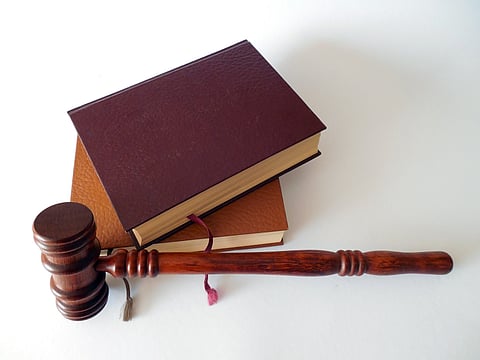

NEW DELHI: From renaming the Waqf Act to providing representation for women and a separate Board of Auqaf for Boharas and Aghakhanis, the government has proposed several amendments to the Waqf Act, 1995.
Significantly, the proposed bill has omitted the contentious section 40 relating to the powers of the Board to decide if a property is Waqf property. The Bill is expected to be tabled in Parliament this week. The Opposition parties said that they would oppose the Bill.
To ensure the representation of women, the Bill proposes to provide for a broad-based composition of the Central Waqf Council and the State Waqf Boards and ensure the representation of Muslim women and non-Muslims. It will also provide for the establishment of a separate Board of Auqaf for Boharas and Aghakhanis.
The government said that to overcome the shortcomings and enhance the efficiency of the administration and management of the waqf properties, it has proposed the renaming of the Waqf Act, 1995, as the Unified Waqf Management, Empowerment, Efficiency, and Development Act, 1995.
The government said that the Waqf Act of 1995 was enacted to provide for the better administration of Auqaf and matters connected therewith or incidental thereto.
However, during the implementation of the Act, it is felt that the Act has not proved effective in improving the administration of auqaf.
The amended bill will ensure that the creation of waqf-alal-aulad does not lead to the denial of inheritance rights to women.
Other provisions in the Bill include providing the functions of the Survey Commissioner to the Collector or any other officer not below the rank of Deputy Collector duly nominated by the Collector for the survey of waqf properties. This will effectively curtail the power of the board.
The bill also provides for the representation of Shia, Sunni, Bohra, Agakhani, and other backward classes among Muslim communities.
It also proposes to streamline the registration of waqfs through a central portal and database. It will also provide for a detailed procedure for mutation as per revenue laws, with due notice to all concerned before recording any property as Waqf property;
Further, the bill proposed to decrease the annual contribution from seven percent to five percent. payable to the Board by mutawalli of every waqf having a net annual income of not less than five thousand rupees;
It will also provide for the filing of waqf accounts by mutawallis to the Board through a central portal for better control over their activities.
The bill has also suggested reforming the Tribunal structure with two members and providing for appeals against the orders of the Tribunal to the High Court within a specified period of ninety days.
It has also omitted section 107 so as to make the Limitation Act, 1963, applicable to any action under the Act, and the omission of sections 108 and 108A relating to special provisions as to evacuee waqf properties and Act to have an overriding effect.
The Act was last amended in 2013.
Here are some of the new proposed amendments to the Waqf Act:
1) Clause 3 of the Bill seeks to amend section 3 relating to definitions to amend and substitute some definitions and provide new definitions in section 3, such as Aghakhani waqf, Bohra waqf, Collector, Government Organisation, Government property, etc.
2) Clause 9 of the Bill seeks to amend section 9 relating to the establishment and constitution of Central Waqf Council to provide a composition broad-based by making provision for including two members from the non-Muslim community.
3) Clause 10 of the Bill seeks to amend section 13 relating to incorporation so as to provide the establishment of a separate Board of Auqaf for Bohras and Aghakhanis if deemed necessary.
4) Clause 11 of the Bill seeks to amend section 14 relating to the composition of the Board so as to make the composition of the State Waqf Board broad-based inter alia making provisions for two members from non-Muslim community.
5) Clause 5 of the Bill seeks to substitute section 4 relating to the preliminary survey of waqf to replace the Collector in place of the Survey Officers, so as to confer powers upon the Collector to survey in accordance with the procedure in revenue laws of the State.
6) Clause 15 of the Bill seeks to amend section 23 relating to the appointment of Chief Executive Officer and his term of office and other conditions of service so as to provide the Chief Executive Officer is to be not below the rank of Joint Secretary to the State Government and omit the requirement of him being a Muslim.
7) Clause 41 of the Bill seeks to omit sections 107, 108 and 108A relating to Act 36 of 1963 not to apply for recovery of waqf properties; special provision as to evacuee properties; Act to have overriding effect.
8) Clause 42 of the Bill seeks to insert new section 108B relating to power of the central government to make rules.
9) Clause 43 of the Bill seeks to amend section 109 relating to the power to make rules.
10) Clause 44 of the Bill seeks to amend section 110 relating to powers to make regulations by the Board.